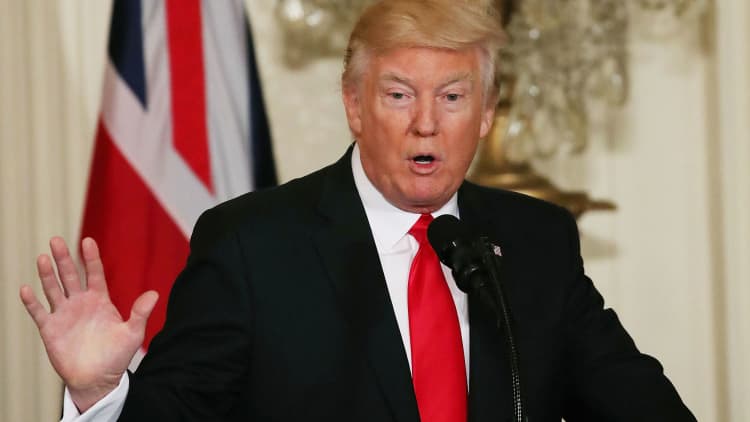
President Donald Trump's immigration order is propelling two divergent parts of his political coalition toward a collision.
The order fulfills a campaign pledge applauded by Trump's base among white working-class voters, who view inadequate border security as a source of terror threats and economic pressures.
But it has rattled members of a globally minded business community that has been counting on the new president to cut taxes and regulations. And the political fallout complicates the task of achieving their goals.
The order's effects, implementation and resulting chaos at major airports rallied opposition to the new president and unnerved his allies. It was no surprise that tech titans such as Google and Facebook — members of the Silicon Valley elite that never backed Trump — voiced their displeasure.
But industrial titan General Electric also spoke out. CEO Jeff Immelt, who recently joined Trump's Manufacturing Jobs Initiative, noted that GE has "many employees from the named countries and we do business all over the region."
"We stand with them and will work with the U.S. administration to strive to find the balance between the need for security and the movement of law-abiding people," Immelt said.
For investors, who have pushed the Dow Jones industrial average past the 20,000 barrier amid rising confidence about business conditions, the furor poses risks. Presidents rely on popular support to advance their agendas. Trump entered the Oval Office less popular than recent predecessors; over the weekend, Gallup reported that 42 percent of Americans approve his job performance, while 51 percent disapprove.
Stiffened Democratic opposition reduces Trump's margin for error in winning confirmation of key appointments, such as Treasury Secretary-designee Steven Mnuchin, as well as business-focused legislation such as tax-cuts and the repeal and replacement of Obamacare. Republican senators, whose overwhelming support the president needs, pushed back against the immigration order in significant numbers.
And after Senate national security leaders John McCain and Lindsey Graham warned that the order could become a "self-inflicted wound" for the U.S., Trump chose to fight them via Twitter. The president derided the two senators as "weak" on immigration.
Veterans of previous administrations cited complaints about inadequate "vetting" of the vetting order itself, by White House staff and experts at affected agencies. Chicago Mayor Rahm Emanuel, who served as chief of staff at the beginning of President Obama's tenure, said it raised questions about the organization and efficiency of the fledgling administration.
"For all the people who said we just need a business person in the White House, you got it," Emanuel said. "Beware."


